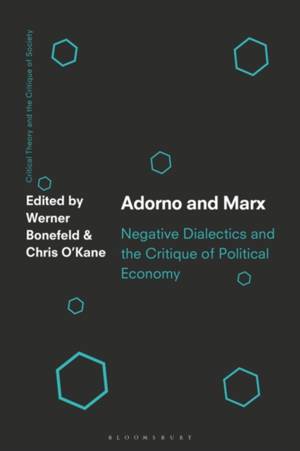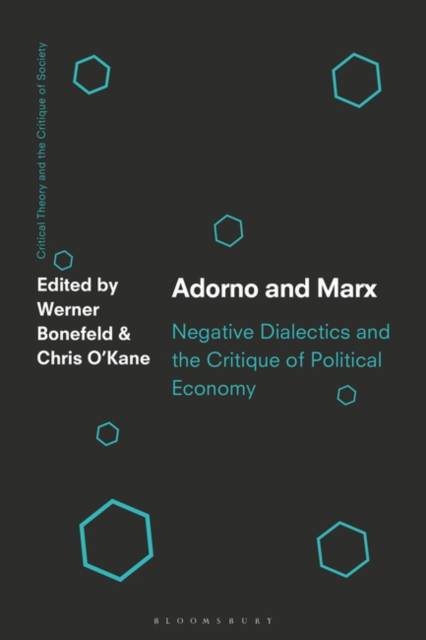
- Afhalen na 1 uur in een winkel met voorraad
- Gratis thuislevering in België vanaf € 30
- Ruim aanbod met 7 miljoen producten
- Afhalen na 1 uur in een winkel met voorraad
- Gratis thuislevering in België vanaf € 30
- Ruim aanbod met 7 miljoen producten
Adorno and Marx
Negative Dialectics and the Critique of Political Economy
Omschrijving
While Adorno has tended to be read as a critic of the administered world and the consumer industry rather than a Marxist, Adorno and Marx establishes Adorno's negative dialectics as fundamental for understanding Marx's critique of political economy. This conception of the critique of political economy as a critical theory marks both a radical departure from traditional Marxist scholarship and from traditional readings of Adorno's work and warns against identifying Adorno with Marx or Marx with Adorno. Rather, it highlights the intersection between Adorno's critical theory and Marx's critique of political economy that produces a critical theory of economic objectivity that moves beyond Marxian economics and Adornonian social theory.
Adorno and Marx offers an ingenious account of critical social theory. Its subversion of the economic categories of political economy contributes to the cutting-edge of contemporary social theory and its critique of social practice.Specificaties
Betrokkenen
- Uitgeverij:
Inhoud
- Aantal bladzijden:
- 272
- Taal:
- Engels
- Reeks:
Eigenschappen
- Productcode (EAN):
- 9781350193673
- Verschijningsdatum:
- 25/01/2024
- Uitvoering:
- Paperback
- Formaat:
- Trade paperback (VS)
- Afmetingen:
- 156 mm x 234 mm
- Gewicht:
- 385 g

Alleen bij Standaard Boekhandel
Beoordelingen
We publiceren alleen reviews die voldoen aan de voorwaarden voor reviews. Bekijk onze voorwaarden voor reviews.






